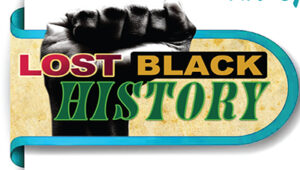“It occurred to me shortly after that that it was an absolute necessity for me to declare homosexuality, because if I didn’t I was a part of the prejudice. I was aiding and abetting the prejudice that was a part of the effort to destroy me.”― Bayard Rustin
Bayard was one of Dr. King’s most trusted lieutenants during the famous March on Washington in 1963. Biography.com described his pivotal role: “Bayard Rustin began his lifelong activism work after moving to New York in the 1930s, where he was involved in pacifist groups and early civil rights protests. Combining nonviolent resistance with organizational skills, he was a key adviser to Martin Luther King Jr. in the mid-1950s. With labor leader A. Philip Randolph, he originated the idea and led the organizing effort for the 1963 March on Washington. It remains one of the largest peaceful demonstrations in American history and paved the way for the passage of key civil rights legislation.”
Bayard was born 1912 in West Chester, Pennsylvania, and raised in a Quaker family that was engaged in civil rights activism. He attended Wilberforce University, Cheney State Teachers College, and City College of New York. The National Park Services noted, “In the 1940s he met A. Philip Randolph and worked with him on various proposed marches on Washington, D.C. to protest segregation in the armed forces and the defense industry. Because of their experiences together, when Randolph was named to head the March on Washington for Jobs and Freedom in 1963, he appointed Rustin as Deputy Director and overall logistical planner. In 1947, Rustin and George Houser, executive secretary of CORE, organized the Journey of Reconciliation which was the first of the Freedom Rides.”
He was openly Gay and proud to be in the vanguard of the nascent Rainbow community. President Obama was effusive in his admiration of the courage Bayard displayed. The Guardian magazine recorded the President’s remarks to an audience at the Smithsonian National Museum of African American History and Culture: “Most of you probably did not read about Bayard Rustin in school, Why? Rustin lived openly and unapologetically gay in the 1950s. Imagine that…” “This is someone who was courageous enough to be who he was despite the fact that he was most certainly going to be ostracized, fired from jobs, pushed aside. And that’s what happened most of the time.” The civil rights organizer is the subject of the first narrative feature from Barack and Michelle Obama’s production company, Higher Ground. Entitled Rustin and streaming on Netflix, the movie chronicles the run-up to the 1963 March on Washington for Jobs and Freedom, during which Dr. Martin Luther King, Jr., delivered his “I Have a Dream” speech.


